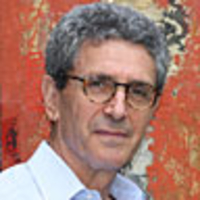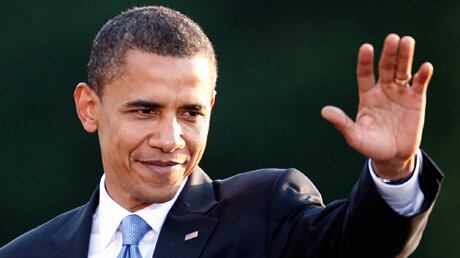
Was it an irresistible impulse toward attention-grabbing overstatement on the part of a man who has always linked intelligence to skepticism, or was it a sober judgment informed by historical understanding when Simon Schama, sitting in Precinct 53 in Iowa at 7:15 p.m. on January 3, 2008, declared that at that precise moment and in that precise place American democracy “came back from the dead”?
The moment, evoked in the very first sentence of Schama’s new book, The American Future: A History, was the announcement of the Democratic primary vote in Iowa when an African-American first-term senator with a liberal record—and a chief opponent much more famous than he—became a viable candidate to be president of the United States. But was American democracy really so dead that it had to be brought back to life?
“Americans have the ability to behave as a great power but always to hold themselves to account as an antimilitary ideal.”
“It serves me right that that would be seen as a massive piece of hyperbole,” Schama said in a phone conversation this week. But what he meant, as he explained it, wasn’t hyperbolic at all. “I had in mind Obama’s bet that this election could be about something,” Schama said, his BBC-London accent, undimmed by 30 years' living in America, lingering on that something. “The alternative bet would have been that it would not be a referendum on issues but a referendum on character. And in a way, it did turn out to be a referendum on character. America wanted a cool, composed intelligence, not the sort of character that McCain turned out to be.”
Well, let’s say that, Schama’s explanation notwithstanding, there was a degree of hype in that opening sentence, but never mind. Schama has always been brilliant at finding the unexpected detail and using it to open up a Big Theme. His Citizens: A Chronicle of the French Revolution starts with the plaster elephant that once stood on the site of the Bastille and that, for Schama, illustrates the tricky task of commemorating the Revolution. Similarly, starting from a sliver of anecdote from Theodore Roosevelt High in Des Moines in 2008, Schama’s new book swells into an examination of the United States at what our author describes as a “transformational moment.” The book itself is based on the text he wrote for a four-part BBC series broadcast in Britain last year that examines the country on the eve of Obama’s election, and it shows Schama, perhaps the most successful pop don since Jacob Bronowski and The Ascent of Man, in another familiar incarnation: as much journalist as historian.
“When I graduated from Cambridge in 1966, I had a part-time job at the Times of London, working on the color supplement in the great golden days of Harry Evans,” Schama said, explaining that journalism is not a sudden passion. “I edited a newspaper in Cambridge and a magazine. Very small potatoes, but I always had the romance not far below the surface. So I just let the little sucker out on this particular occasion.”

The little sucker found itself in a lot of places besides Iowa’s Precinct 53 on primary night. There was the Drop Dead Zone Café in San Antonio, Texas, where he interviewed Ricardo Sanchez, the outgoing commander of American forces in Iraq. There’s Easter Sunday at the Ebenezer Baptist Church in Atlanta, where Schama reflects on American evangelicalism, including abolitionist evangelicals before the Civil War. He goes to the Lake Mead Reservoir in Nevada to dramatize what he regards as a more serious long-term challenge to America than the solvency of the banks: water, or the looming lack of it.
“It was real On The Road stuff,” Schama said.
Like that opening scene in Iowa, the present-day locations trigger excursions into the past, Schamaesque in their richness of detail. His chapter “American War” begins with a visit to Arlington National Cemetery, which transitions into a brief biography of Montgomery C. Meigs, the quartermaster-general of the Grand Army of the Republic, leading to the debate between Thomas Jefferson and Alexander Hamilton about founding what came to be West Point, which, in turn, reflects the two main competing views of America’s relations with the rest of the world.
“There’s this early debate in which, for Jefferson, American innocence is best served by disentangling itself from the rest of the world, but in which this view is belied by Hamilton’s superior realism,” Schama said. “When it comes to a military academy, Hamilton’s logic was that it was imperative to found a professional officer corps, because otherwise you’d go into the world with one hand tied behind your back. But that’s not how things worked out. West Point was founded by Jefferson, who wanted the United States to remain fundamentally and irreproachably a civilian nation.”
And so, Jefferson, as Schama puts this, ensured that West Point’s “faculty and officers were trustworthy democrats, sworn to defer to the civilian powers,” thereby ensuring that the American military academy would thwart militarism—a very American phenomenon, Schama thinks.
“It’s amazing how many soldier-presidents there have been, and it was Eisenhower, one of them, who warned against the military-industrial complex,” he said. “We have generals who are more civilian than the civilians. Americans have the ability to behave as a great power but always to hold themselves to account as an anti-military ideal.”
But what’s the overriding theme, the main lesson from all those peregrinations with the BBC through the American election-campaign landscape?
“The overarching thing arose from a slight sense of irritation with a lot of the non-American responses to the U.S.,” he said, “the assumption that everything was cowboy politics. My response was, ‘You don’t understand a thing about American politics, which can turn on a dime.’ In each of the great areas that I try to deal with in the book there is always another point of view, and that other point of view always has a chance of coming to power.
“There are these big-shape shifts that can take place, and that’s what American life is like.”
Plus: Check out Book Beast, for more news on hot titles, authors and excerpts from the latest books.
Richard Bernstein is a writer based in New York. He was a critic and foreign correspondent for The New York Times for 24 years. His new book, The East, the West, and Sex: A History of Erotic Encounters, will be published by Alfred A. Knopf in June.






